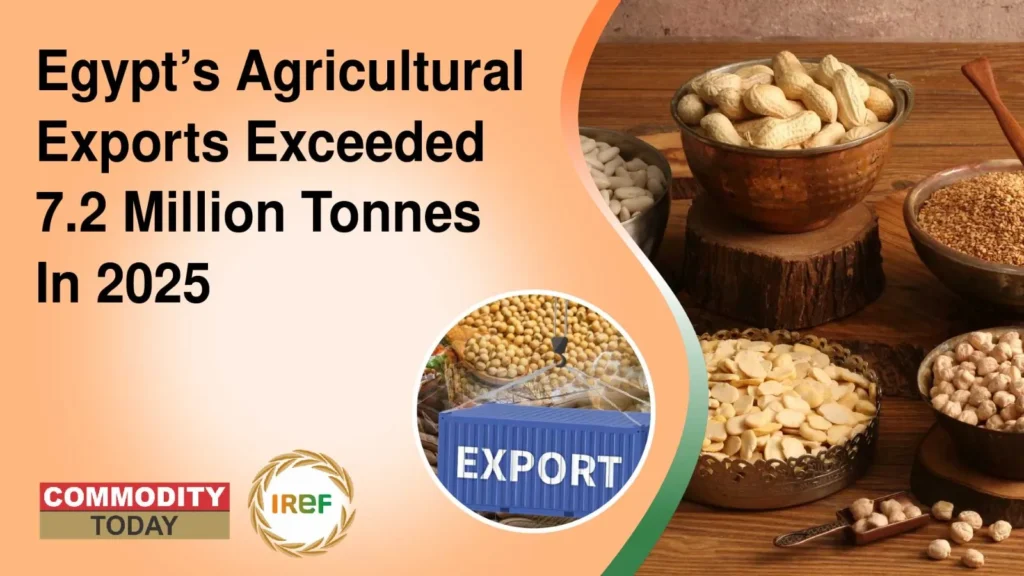Egypt’s Minister of Agriculture and Land Reclamation, Alaa Farouk, announced that Egypt’s agricultural exports have surpassed 7.2 million tonnes so far in 2025, which marks an increase of more than 600,000 tonnes compared to the same period last year.
A report outlining data on Egypt’s agricultural exports
The data was presented in an official report by Mohamed El-Mansi, Head of the Central Administration of Agricultural Quarantine at the Agricultural Services and Follow-up Sector. The report states that Egypt’s agricultural sector is maintaining its continued momentum and outlines export volumes by crop.
According to figures, citrus fruits hold the top position in the list of exports with more than 1.9 million tonnes, whereas Fresh potatoes are in second, around 1.3 million tonnes, followed by fresh onions, nearly 256,000 tonnes. In addition, Fresh and dry beans sustained fourth position with more than 231,000 tonnes. Additional key export crops this season include grapes, mangoes, fresh tomatoes, garlic, pomegranates, strawberries, and guavas.
What did the Minister say further?
Minister Farouk underscored that the continuous growth of agricultural exports highlights the sector’s increasing productivity and international competitiveness. He reasserted the government’s commitment to expanding Egypt’s presence in global markets and upholding rigorous quality standards to ensure continued access to new export destinations.
He credited this success to the efforts of farmers, producers, exporters, and oversight bodies—including the Agricultural Quarantine Authority and accredited reference laboratories under the ministry. Not only this, but the minister’s strategic international partnerships have also played an important role in improving Egypt’s agricultural standing. Furthermore, the minister cited that the rise in agricultural exports is a sign of the sector’s health and a positive indicator of the Egyptian economy’s resilience. He highlighted its contribution to foreign currency inflows, job creation, and national food security.



